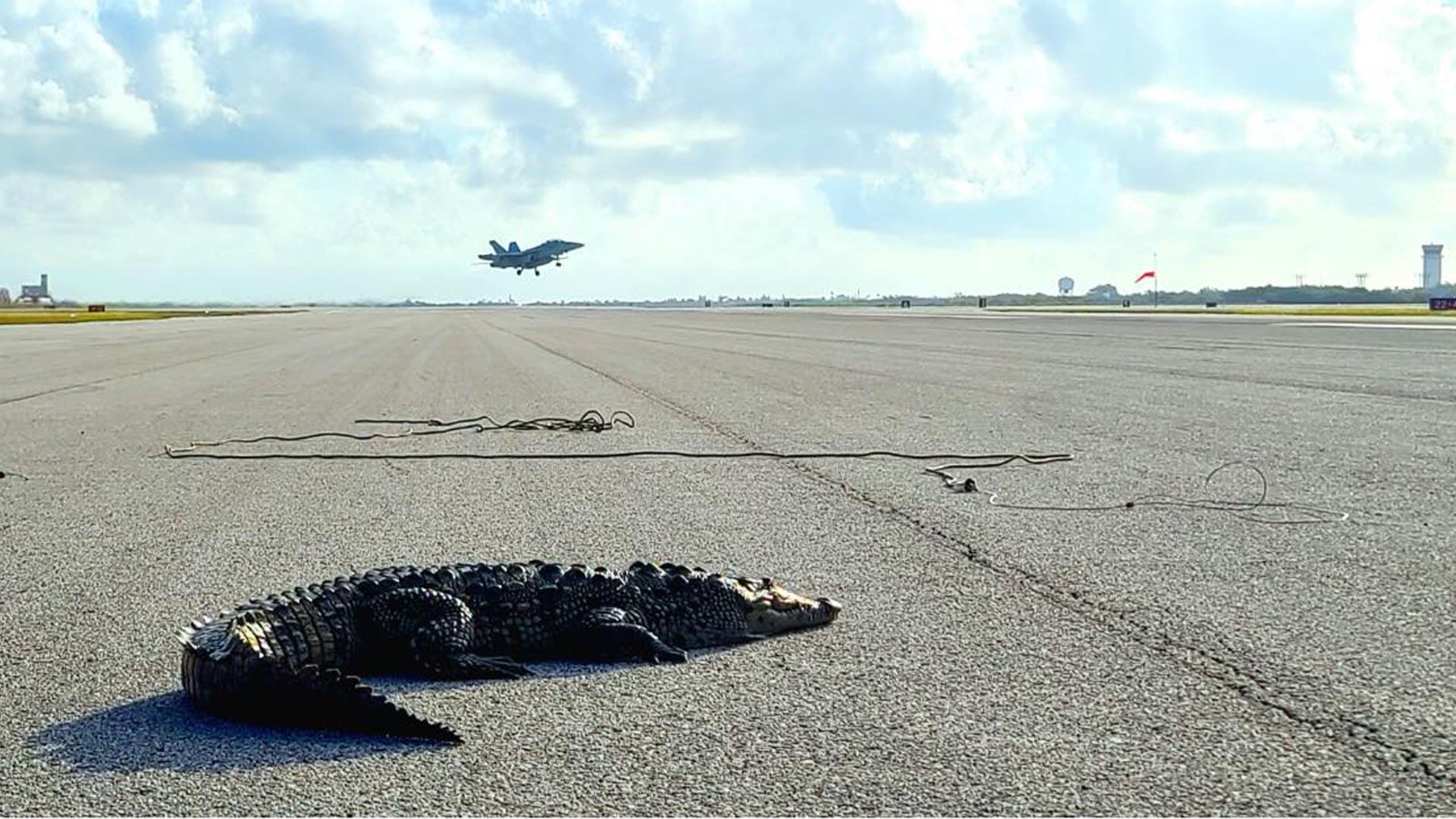
Some animals are quite comfortable playing their part in the military. Take military working dogs, which have received commendations for sniffing out bombs, been trained to potentially sniff out diseases, and even helped take down an Islamic State leader.
Then there’s s the Mark 7 Marine Mammal System, better known as bottlenose dolphins trained by the Navy as part of the Marine Mammal Program to hunt for mines and ward off enemy swimmers. From carrier pigeons to elephants, animals have long proven loyal companions in the art of war.
Other fauna, though, has less use for the U.S. military’s myriad of rules and regulations, including this crocodile who recently found one of the runways at Naval Air Station Key West in Florida a suitable spot to bask in the sun.
“This airfield resident was soaking up some sun on one of our runways recently and didn’t want to budge,” NAS Key West wrote on Monday of the crocodile, who seemingly showed little concern or interest in a F/A-18 Super Hornet taking off nearby.
The crocodile stepped onto the flightline on March 10.
While there are about six or seven crocodiles that live on the base, according to a January survey of the property, NAS Key West spokesperson Danette Baso Silvers said that they normally sun themselves in the grassy areas off the runways.
This one, however, had other ideas, temporarily taking up residence at one end of the base’s largest runway. Baso Silvers said that the crocodile’s presence forced flight operations to shift to a different runway after the stubborn crocodile showed no interest in moving.
The base’s resident United States Department of Agriculture wildlife biologist, Rosa Gonzalez, called in assistance from the Florida Fish and Wildlife Conservation to help wrangle the reptilian interloper and transfer it outside the fenceline.
“After a while, crocodile!” the air station wrote.
It’s not the first time that a large reptile has made its way onto a Florida military installation. In 2019, a driver near Naval Air Station Jacksonville snapped some photos of an alligator scaling a chain link fence and making its way onto base.
The Key West crocodile, a female, was measured at about seven feet long and 110 pounds. Certainly not the kind of thing you’d like to encounter during morning PT.
Wildlife officials let Gonzalez name the crocodile.
“People from Key West are called conchs,” said Baso Silvers, “Rosa [Gonzalez] named her Conchita. She’s our conch now.”
What’s new on Task & Purpose
Want to write for Task & Purpose? Click here. Or check out the latest stories on our homepage.
